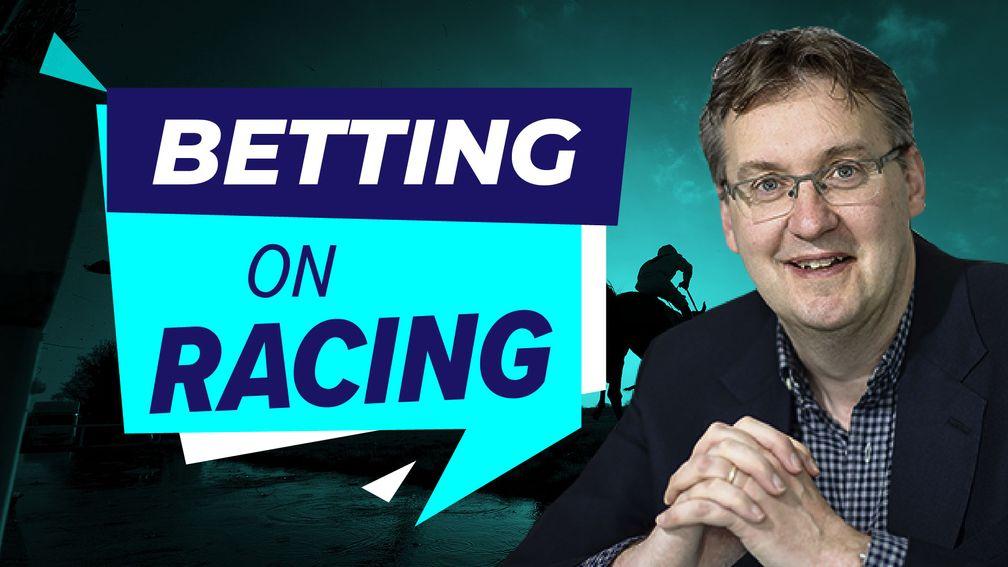Overrated angles and what I focus on when trying to find winners

Betting on Racing is an app-exclusive daily punting guide from three of the Racing Post's most renowned experts: Tom Segal, Paul Kealy and David Jennings. A new instalment will be published every weekday for the next three weeks.
The first thing to say about pace, draw and tactical analysis is they all play a part in the outcome of any contest and there are undoubtedly great tools when trying to work out what has actually happened after the event.
The problem I have is trying to use any of them as tools before the race can confuse you and take you further away from the correct answer. That might be because I'm not very good at that sort of analysis, but the truth is that draw biases change quickly and that following the best pace is often not the key to success that many analysts would have us believe.
Although Royal Ascot is often the strongest example, and was again this year, it is not the only meeting where draw biases can seemingly flip from one day, and even one race, to the next. The same thing happened during the Ayr Gold Cup meeting last September. Getting bogged down in the draw meant that punters – including myself – often found themselves having no chance from the get-go.
As for pace, I'm a big believer that it is where the most even pace is that is the key to a race, not following too fast a pace. If you watch an 800m race on the athletics track, the fastest times are never run when the runners go very fast for the first 400 metres – it's when they run even splits for both laps of the track.
That's the same in horseracing. We often see races where one side is miles ahead at halfway and by the end of the race, the important point, the other side is clear.
What I'm getting at is that the key to winner-finding is, and always will be, finding horses who can run the fastest or the one who is best handicapped.
This year, inspired by appearances on the Racing Post's In The Know preview show, I've adopted the one-minute approach to sprint handicaps in particular. By this, I mean I've totally uncomplicated the problem, not looked at draw or pace, and just tried to find the horse with the most upside. It has paid dividends and I've managed to find a few winners.
Time after time, all we hear is the over-complication of a simple race.
There is too much time focused on the paddock, pace and draw without stopping to think about plain old speed and ability. Of course, it's great when you eke out a perfectly analysed winner, but the truth is ability wins races, not draws, or following pace, or paddock analysis, the vast majority of the time.
Do not let making clever-sounding predictions about the pace of the race take you away from what is the really critical element.
Tomorrow: Paul Kealy on the need to hold multiple accounts
Read more in our Betting on Racing series:
David Jennings: the might of Elliott and Mullins - and where they run their best horses
Paul Kealy: 'Start with the rank outsider and work backwards' - form study tips from the best
Tom Segal: get to know trainers, their methods and what big races they target
Published on inApp exclusive
Last updated
- Sir Henry Cecil remembered: 'The public have always been fantastic to me and I really don't know why'
- Johnny Dineen's wager of the weekend
- 'To win that far he has to be something else' - Kieren Fallon and Jason Weaver's best bets on our expert panel
- 'At 10-1, I'm in' - Paul Kealy's five horses to take from Epsom's Derby meeting
- I thought I could win the National - but in five strides it all went up in smoke
- Sir Henry Cecil remembered: 'The public have always been fantastic to me and I really don't know why'
- Johnny Dineen's wager of the weekend
- 'To win that far he has to be something else' - Kieren Fallon and Jason Weaver's best bets on our expert panel
- 'At 10-1, I'm in' - Paul Kealy's five horses to take from Epsom's Derby meeting
- I thought I could win the National - but in five strides it all went up in smoke